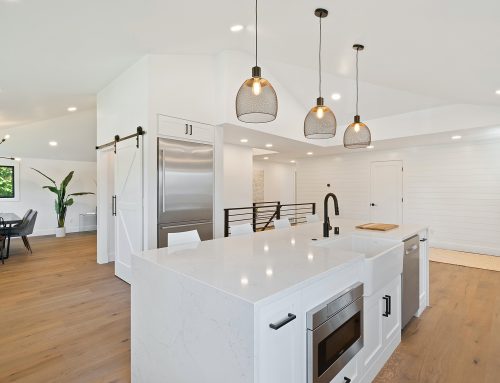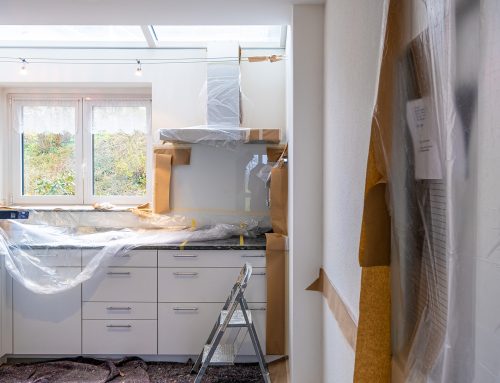Knowing you want to renovate is often the easiest step of the home improvement process. Deciding what to renovate, where to spend your money, and whether or not to do it yourself are more complex parts of the process. Here are other things to consider as you begin to make your home improvement plan.
Determine your end goal. What do you envision for your end space? What are your long-term plans for your home? Take measurements, collect images and refine your idea so that regardless if you are doing it yourself or hiring someone there is a clear vision to follow.
What tools will you need? If you are planning to DIY any portion of your project, consider the tools you may need beyond just materials and time. For example, if you are going to lay a tile floor, do you have a wet saw? If you do not, would you buy or can you rent?
How much plumbing and electricity are involved? Anytime you start moving pipes or wires, things can get dicey. It’s best to leave these parts of a home improvement project to a professional and get a consultation in advance. Contrary to what often happens on television, it can be very expensive or impossible to move some plumbing or wires. Your project may also need a permit, depending on the scale—something a licensed contractor needs to obtain.
How much time will your project take? Are you looking at a five-year plan, broken down into stages? Or is this something that could be done in a long weekend? Setting a realistic expectation now can help prevent undue stress later on. Generally, everything takes longer than you anticipate.
Does this make financial sense outside of your budget? A common pitfall of home improvement is putting more money into your home than you are able to get out of it. If you are spending less than five years in this current home, you should consider smaller projects. Have a real estate agent check comps in your area to make sure your plan doesn’t outpace your home value.
Do your contractor homework. Ask specific questions and expect specific answers. Check their references. Ask for pictures of previous projects. Ask friends and family for recommendations. Take your time to compile estimates in order to feel comfortable that the person you hire is both reputable and understands what you are trying to achieve.
Sign a contract. Don’t do work without a contract as it protects both you and your contractor and lays out the expectations. The contract should include a detailed project description, required permits, license and inspections, and insurance or property damage liability. It will state warranties, lien waivers and a clear timeline plus allowances, as well as the ways and circumstances you would receive any money back for unfinished work.
Will my insurance be affected? Check in with your insurance agent to determine if any changes you’ve made to the house affect your policy. You don’t want to get caught being underinsured.
Photo by Cody Hughes @clhughes21





